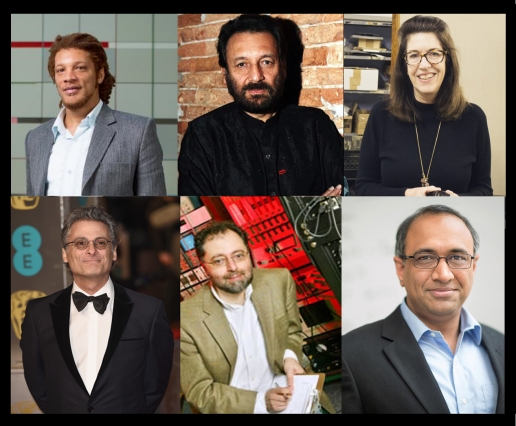At a recent symposium, MIT Open Learning invited experts to discuss the power of VR and AR tools to drive engagement with education.
At a recent on-campus symposium titled “VR, Sound and Cinema: Implications for Storytelling and Learning,” MIT Open Learning explored the future of storytelling and learning through virtual reality (VR) and augmented reality (AR).
The event featured a panel of faculty and industry experts in VR/AR, cinema, and storytelling, showcasing the power of these tools and their potential impact on learning. Speakers included Sanjay Sarma, vice president for Open Learning; Fox Harrell, a professor of digital media and artificial intelligence at MIT; Academy Award-winning director Shekhar Kapur; Berklee College of Music Professor Susan Rogers; Academy Award-winning sound designer Mark Mangini; and Edgar Choueiri, a professor of applied physics at Princeton University.
Harrell, who is currently working on a new VR/AR project with MIT Open Learning, studies new forms of computational narrative, gaming, social media, and related digital media based in computer science. His talk focused on answering the question: “How do virtual realities impact our learning and engagement?” He also screened a preview of Karim Ben Khelifa’s “The Enemy,” a groundbreaking virtual reality experience that made its American premiere at the MIT Museum in December 2017.
In “The Enemy,” participants embody a soldier avatar, who encounters and interacts with enemy soldiers. Participants can ask their enemies questions, who can then adjust their responses based on the participants’ own lived experiences as well as their real-time physiological responses. The intended result is to create empathy between supposed enemies, whose hopes, dreams, and nightmares are more similar than their biases would have them believe.


